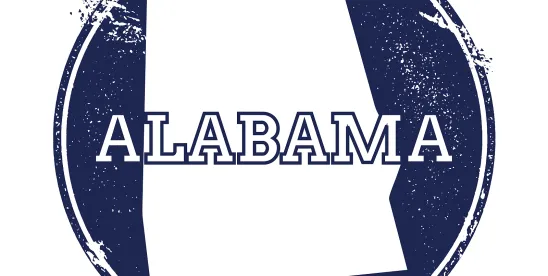Each year we are asked to predict the tax-related bills that died in the last legislative session but will likely be re-introduced in one form or another, as well as the tax issues that we expect to see addressed for the first time in the upcoming session of the Alabama Legislature. Because of the November general elections, Alabama’s 2025 Regular Session starts a bit later than normal – February 4, 2025. Here is our list as of January 21, 2025, which is a moving target. Oftentimes we will not see some of the more important tax bills filed until a week or two (or less) before the session convenes:
- House Bill 36 has been prefiled to amend the Simplified Sellers Use Tax Program (SSTP) to increase the rate from the current flat 8% to a combined rate much closer to the average rate charged by retailers within most municipalities in our state, e.g., 9.3%, and to allocate the incremental revenue differently than the current population-based formula. That bill died last session, but Rep. Chris England has announced he will try again, with the backing of the state’s largest municipalities.
- We expect a bill to be introduced by House Minority Leader Anthony Daniels and others to repeal the June 30, 2025, sunset date for the popular “overtime exemption,” and make it permanent or at least extend the current sunset date. Readers may recall that the fiscal impact of this exemption far exceeded initial estimates, which has decreased Education Trust Fund (ETF) receipts.
- House Bill 52 has been prefiled to extend the sunset date for the deductibility of contributions to ABLE accounts (Rep. Danny Garrett).
- Senate Bill 22 has reappeared, which if enacted would, under unstated criteria and procedures, recapture or “claw-back” Jobs Act incentives if a company previously awarded these incentives or a “related company” violates federal child labor or state human trafficking laws (Sen. Merika Coleman).
- House Bill 46 would amend the controversial Rural Physician Tax Credit statute to clarify the criteria, increase the amount of the credit to $10,000 annually, and allow it to be claimed for four consecutive years (rather than the current five-year period). This was called for by Chief Judge Jeff Patterson in a recent Alabama Tax Tribunal ruling that, as is often the case, denied the credit to what both parties agreed to be an otherwise deserving rural doctor (Rep. Ed Oliver).
- We anticipate a bill to be introduced that would reduce the state sales tax on “food” from 3% to 2%, even though less-than-stellar ETF growth did not trigger the automatic reduction that many hoped for, and that would clarify how much municipalities may reduce their respective tax rates. Most recently, Kansas completed its multi-step repeal of its “grocery tax.” Tennessee, Mississippi and Arkansas are also considering the proposal.
- We expect a bill will be introduced (again) to allow municipalities that forfeited their authority to levy taxes and fees on residents and businesses in their police jurisdictions to re-acquire that authority by filing delinquent reports with the Examiners of Public Accounts and submission of annual reports (hopefully this time with fair notice to taxpayers).
- We expect a bill to be introduced (again) to increase the income tax exemption for withdrawals from IRC Section 401(k) plans and IRAs to $10,000 annually for “seniors.”
- We expect that a bill will be introduced (again) to create a Small Business Health Care Insurance Premium deduction for individuals, which was backed last session by several prominent business and trade associations.
- We are monitoring legislative and Alabama Department of Revenue (AL DOR) reaction to Congressional and President Trump’s efforts either to extend various provisions of the Tax Cuts and Jobs Act of 2017, that will otherwise sunset on December 31, 2025, or allow certain provisions to lapse or be amended in some way, e.g., the so-called SALT Cap and the IRC Section 163(j) interest limitation.
- We should also monitor legislative and AL DOR reaction to President Trump’s tax proposals that if enacted would, for example, exempt tip income and overtime pay from income tax.
- Last but certainly not least, look for legislation extending the deadline to appeal either a preliminary or final assessment from 30 days to either 60 or 90 days, as recommended by the Council On State Taxation (COST) and the AICPA.





 />i
/>i

